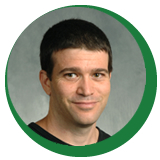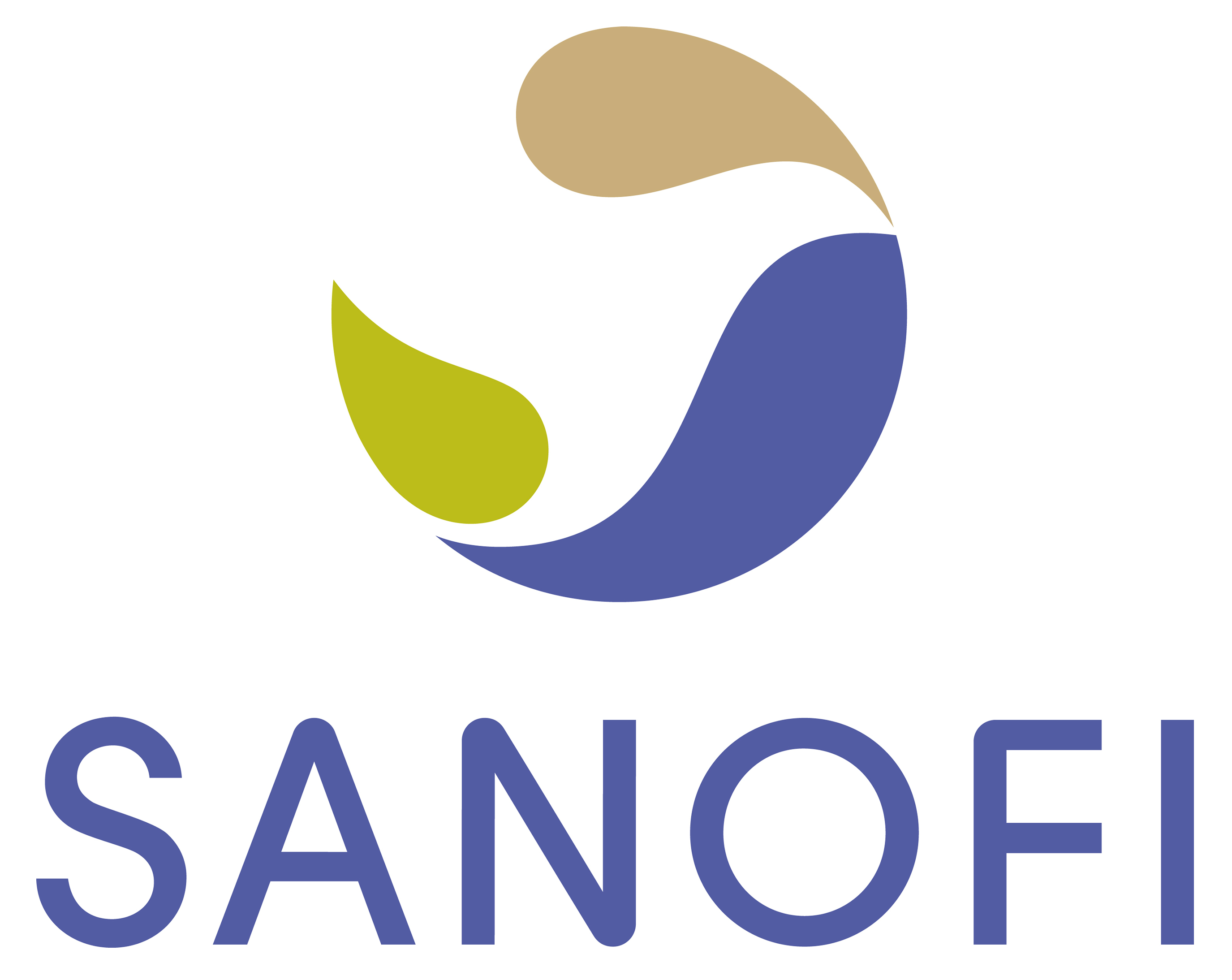KEYNOTE SPEAKERS' ABSTRACTS & BIOGRAPHIES
Updated Nov 6, 2014
| DREAM Challenges |
 Andrea Califano
Andrea Califano
Clyde and Helen Wu Professor of Chemical Systems Biology
Columbia University
New York, United States
https://systemsbiology.columbia.edu/faculty/andrea-califano
Title: From Functional Regulatory Modules to the Genetic Determinants of Human Disease
Abstract: Identification of driver mutations in human diseases is often limited by cohort size and availability of appropriate statistical models. We propose a novel framework for the systematic discovery of genetic alterations that are causal determinants of disease, by prioritizing genes upstream of functional disease drivers, within regulatory networks inferred de novo from experimental data. We tested this framework by identifying the genetic determinants of the mesenchymal subtype of glioblastoma. Our analysis uncovered KLHL9 deletions as upstream activators of two previously established master regulators of the subtype, C/EBPβ and C/EBPδ. Rescue of KLHL9 expression induced proteasomal degradation of C/EBP proteins, abrogated the mesenchymal signature, and reduced tumor viability in vitro and in vivo. Deletions of KLHL9 were confirmed in >50% of mesenchymal cases in an independent cohort, thus representing the most frequent genetic determinant of the subtype. The method generalized to study other human diseases, including breast cancer and Alzheimer’s disease.
Biography: Andrea Califano is director of the Columbia University Department of Systems Biology, director of the JP Sulzberger Columbia Genome Center, director of the Center for Multiscale Analysis of Genetic Networks (MAGNet), and associate director of bioinformatics at Columbia University’s Irving Cancer Research Center. He also currently serves as a member of the Board of Scientific Advisors of the National Cancer Institute.
In collaboration with colleagues in the Columbia scientific community, the Califano Lab was the first to publish fully context-specific molecular interaction networks (interactomes) for normal and tumor cells in humans, including neoplastic malignancies of lymphoma and glioma subtypes. Ongoing projects in the lab aim to define the regulatory networks for neoplasmic states of the breast, ovary, prostate, germ cell, colon, and lung; for the study of pluripotency and lineage differentiation in stem cells; and for the mechanisms associated with the onset and progression of neurodegenerative diseases.
Dr. Califano is a principal investigator on several major center of excellence grants, including MAGNet, the Library of Integrated Network-Based Cellular Signatures (LINCS), and the Cancer Target Discovery and Development Center (CTD2).
............................................................................................................................... William C. Hahn
William C. Hahn
Chief, Division of Molecular and Cellular Oncology
Deputy Chief Scientific Officer
Department of Medical Oncology
Dana-Farber Cancer Institute
Boston, United States
http://research4.dfci.harvard.edu/hahnlab/
Title: Systematic functional genomics and cancer
Abstract: Large scale characterization of cancer genomes has led to information regarding the identify, number, and types of alterations found in human tumors. However, the large number of mutations identified to date require complementary approaches to understand the function of these mutated genes and to elucidate pathways involved in cancer initiation and progression. Over the past several years, we have developed genome scale approach to perform loss of function and gain of function somatic cell genetics to perform a systematic evaluation of genes involved in cancer initiation and maintenance. We have used these tools to dissect known and novel pathways involved in malignant transformation. In particular, we have dissected the signaling pathways related to beta catenin and KRAS, two well-known cancer drivers that have proven difficult to target therapeutically. These approaches have identified new components of these pathways, which may provide a foundation for therapeutic strategies.
Biography: Dr. William C. Hahn is a medical oncologist in the Department of Medical Oncology at the Dana-Farber Cancer Institute and a Senior Associate Member of the Broad Institute of MIT and Harvard. He co-directs the Center for Cancer Genome Discovery, is the Chief of the Division of Molecular and Cellular Oncology and is the Deputy Chief Scientific Officer at the Dana-Farber Cancer Institute.
Dr. Hahn has made numerous seminal discoveries that have informed our current molecular understanding of cancer and which have defined new conceptual paradigms and formed the foundation of new translational studies. His laboratory has helped develop widely adopted experimental models and genome-scale tools, all of which he has made openly available to the research community. Dr. Hahn and his colleagues helped demonstrate that activation of the reverse transcriptase telomerase plays an essential role in malignant transformation. This observation provided the means to create novel experimental model systems to identify and characterize the cooperative genetic interactions that lead to malignant transformation. Together with his colleagues at the Broad Institute, he helped develop genome scale tools and technology (RNAi and open reading frame collections) to perform somatic cell genetics in human cells. His laboratory has pioneered the use of integrated functional genomic approaches to identify and validate cancer targets. Using these approaches, his laboratory has discovered several new oncogenes including IKBKE, CRKL, CDK8 and SOX2 as well as targets (TBK1 and CYCLOPS genes) that are essential in specific genetic contexts, which will pave the way for new therapeutic approaches. The tools, models and approaches that his laboratory has developed have already become widely used worldwide to discover and validate molecularly targeted cancer therapies. Dr. Hahn and his collaborators are now engaged in clinical trials testing whether inhibition both of these new oncogenes or synthetic lethal partners will lead to clinical responses.
............................................................................................................................... Lincoln D. Stein
Lincoln D. Stein
Director, Informatics and Biocomputing Platform
Ontario Institute for Cancer Research
Toronto, Canada
http://oicr.on.ca/person/oicr-investigator/lincoln-stein
Title: The Future of Genomic Databases
Abstract: One of the most enlightened aspects of the modern era of biological research is the idea that the experimental data sets that underlie published data must be available for use by the research community for the purposes of replication and extension. Nowhere has this been truer than in genomics, where raw nucleotide sequencing data is routinely deposited into open community databases. However, the revolution in "next generation" sequencing technologies is straining both the capacity of the nucleotide databases as well as the network bandwidth required to download and compute on it. In this talk, I will discuss the promise of cloud computing for archiving, distributing and computing over large genomics datasets. I will describe the technological, ethical and policy hurdles that affect genomic cloud computing, and discuss lessons learned from the cloud-based genomics projects that I have participated in.
Biography: Dr. Lincoln Stein leads the OICR's Informatics and Bio-computing Program, which undertakes the management and analysis of large integrative cancer research projects including the International Cancer Genome Consortium (ICGC) and its Data Coordination Centre. His research focuses on using network and pathway-based analysis to identify common mechanisms in multiple cancer types and to devise prognostic and predictive signatures to aid in patient management. In addition, his group works on problems relating to the management of, and access to, cancer genomes and other large biomedical data sets.
| Regulatory Genomics |

Nancy Cox
Department of Human Genetics
The University of Chicago, United States
http://genes.uchicago.edu/contents/faculty/cox-nancy.html
Title: Systems Approaches to Integration of Regulatory Information for Characterizing Genome Variation Affecting Complex Human Traits
Abstract: Although it has been effective to layer information on regulatory variation, such as expression quantitative trait loci (eQTLs), on data from association studies to inform our understanding of genome variation affecting complex human traits, I argue here that more comprehensive efforts at data integration and systems based approaches can provide more useful information. I will describe several approaches we are using to integrate regulatory variation directly into analysis of complex traits and illustrate the application of these systems approaches to disease and drug response phenotypes.
Biography: Nancy Cox is a quantitative human geneticist with a research program based on identifying and characterizing genome variation affecting complex human traits and common diseases. Recent research has focused on integration of regulatory variation into studies of genome variation affecting risk of common disease and complex human traits. In addition to working in the GTEx Consortium since its inception, Dr. Cox is active in research in pharmacogenomics, type 2 diabetes and diabetic complications, breast cancer, and neuropsychiatric phenotypes including Tourette Syndrome, obsessive compulsive disorder, autism, schizophrenia, and bipolar disorder.
............................................................................................................................... Ellen Rothenberg
Ellen Rothenberg
Albert Billings Ruddock Professor of Biology
California Institute of Technology
Pasadena, United States
www.bbe.caltech.edu/content/ellen-rothenberg
Title: Genome-wide Transcriptional Machinery of a Cell-fate Choice: The Early T-cell Pathway
Abstract: The stages through which a multipotent precursor becomes committed to a T-cell fate have been well characterized for a decade, but the underlying transcriptional machinery is only now becoming clear. Distinct groups of transcriptional factors dominate successive stages of early T cell development, maintaining metastable network links but letting new regulators accumulate that eventually drive the cells to the next stages. The presentation will describe the roles of several key regulators that control these state switches.
Biography: Ellen Rothenberg earned a bachelor's degree in Biochemical Sciences from Harvard University in 1972 (summa cum laude). She received her Ph.D. in 1977 from Massachusetts Institute of Technology, carrying out her thesis research in the laboratory of David Baltimore. In 1977 she began her postdoctoral research in immunogenetics at Memorial Sloan-Kettering Cancer Center with Edward Boyse. In 1979, she became Assistant Research Professor at The Salk Institute for Biological Studies, Department of Cancer Biology. In 1982, she moved to the California Institute of Technology, Division of Biology, where she was promoted to Associate Professor of Biology in 1988, Professor of Biology in 1994, and the Albert Billings Ruddock Professor of Biology in 2007. She has won several teaching awards at Caltech and has also taught internationally in advanced courses on immunology, developmental biology, and gene regulatory networks. She is a member of several institutional Scientific Advisory Boards for US and international institutes and is a current or past member of the Editorial Boards of several prominent immunology journals. She has also served on Program, Award, and Nominating committees for the American Association of Immunologists and on grant review panels for the US Government agencies (NIH and NASA) and three private foundations, and she has founded or served on the organizing committees for multiple international conferences in immunology and systems biology. Her group’s research is at the interface of immunology, stem cell developmental biology, systems biology, and genomics.
............................................................................................................................... Jay Shendure
Jay Shendure
Associate Professor
Genome Sciences
University of Washington
Seattle, United States
www.gs.washington.edu/faculty/shendure.htm
Title: Next Generation Functional Analysis of Genetic Variants
Abstract: Our capacity to sequence human genomes has exceeded our ability to interpret genetic variation, particularly in non-coding regions. To address this challenge, we are developing computational methods for objective, data-rich, and quantitative integration of genomic annotations, as well as new experimental frameworks for multiplex empirical measurement of the functional effects of both coding and non-coding variation, e.g. massively parallel reporter assays. In this talk, I will describe recent progress from our lab in these areas as well as the more general progress of the field towards measuring, modeling and predicting the functional consequences of genetic variants.
Biography: Jay Shendure is an Associate Professor of Genome Sciences at the University of Washington. Dr. Shendure's 2005 PhD included one of the first successful demonstrations of massively parallel or next generation DNA sequencing. His research group in Seattle has made significant contributions to technologies including exome sequencing and its application to identify the basis of Mendelian disorders and autism spectrum disorders; genome-wide experimental haplotyping and its application to non-invasive whole genome sequencing of a human fetus; massively parallel functional analysis of cis-regulatory elements; and contact probability maps for de novo genome assembly. He is the recipient of the 2012 Curt Stern Award from the American Society of Human Genetics, the 2013 FEDERAprijs, a 2013 NIH Director's Pioneer Award, and the 2014 HudsonAlpha Life Sciences Prize.
............................................................................................................................... Brendan J. Frey
Brendan J. Frey
The Centre for Cellular and Biomolecular Research
University of Toronto, Canada
genes.toronto.edu
Title: Precision Medicine Using Computational Regulatory Models
Abstract: How should we assign a phenotype score to a genetic variant? Association studies and databases of labeled variants can be misleading, due to confounding factors and ascertainment biases. A very different approach is to derive computational regulatory models that can predict the causal effects of genetic variation on gene expression. We trained a computational model of splicing regulation that takes as input a DNA sequence and a tissue label, and outputs the distribution over spliced transcripts. By scoring variants by how much they are predicted to alter the transcript distribution, we identified previously unknown genetic determinants of autism, spinal muscular atrophy and cancers. An evaluation of over 650,000 variants, including deep intronic mutations and synonymous exonic mutations, reveals widespread splicing misregulation, especially among variations previously linked with disease. These results point toward a new, regulatory code-based era of precision medicine.
Biography: Brendan Frey is a Professor at the University of Toronto, with appointments in Engineering and Medicine. He conducts research in the fields of genome biology and machine learning, and is best known for his work on the splicing code, affinity propagation and factor graphs. Brendan holds the Canada Research Chair in Biological Computation, and is a Fellow of the Canadian Institute for Advanced Research, the American Institute for the Advancement of Science, and the Institute of Electrical and Electronic Engineers. He has received several distinctions, including the John C Polanyi Award, the EWR Steacie Felloship, and Canada’s Top 40 Leaders Under 40 Award. He has consulted for several industrial research and development laboratories in Canada, the United States and England, and he is currently on the Technical Advisory Board of Microsoft Research. His former students and postdoctoral fellows include professors, industrial researchers and developers at universities and industrial laboratories from across Canada, the United States and Europe.
...............................................................................................................................
 Amos Tanay
Amos Tanay
Department of Computer Science and Applied Mathematics
The Weizmann Institute
Rehovot, Israel
http://compgenomics.weizmann.ac.il/tanay/
Title: Inferring Gene Regulation in the Single Cell Era
Abstract: Single cell methods for characterizing the transcriptional, epigenomic and chromosomal states of complex cell populations within tissues pose exciting challenges and opportunities for computational biologists. First, the new experiments take snapshots of individual regulatory states instead of averaging states over millions of cells and are therefore compatible with computational approaches to infer regulatory networks. Second, data on the epigenetic markup and three-dimensional conformations of functional elements within chromosomes generate strong mechanistic priors for model inference. Methodologies for characterizing cell states using single-cell datasets are therefore important, but their development is still challenging, as illustrated by recent experiment performed in our group.
Biography: Amos Tanay is an Associate Professor and Kimmel investigator in the department of Computer Science and the department of Biological Regulation at the Weizmann Institute. Amos’s background is in Mathematics, and he spent several years in the Israeli start-up industry before coming back to Tel-Aviv University and completing his PhD in Computational Biology. He did postdoctoral training at Rockefeller University and later established his own research group at Weizmann. The Tanay group is combining computational and experimental work to study genomic and epigenomic regulation at multiple scales, from the nucleotide level and up to the physical conformations of entire chromosomes. By developing quantitative, high-resolution experiments, the group explores how heterogeneous populations of single cells within tissues acquire, memorize, and later modify their functional states.
............................................................................................................................... Gene Yeo
Gene Yeo
Cellular and Molecular Medicine
University of California, San Diego
United States
http://yeolab.ucsd.edu/yeolab/Gene_Yeo.html
Title: Insights from transcriptome-wide RNA binding protein-RNA networks
Abstract: RNA binding proteins mediate post-transcriptional RNA regulation that when altered result in severe neurological diseases. I will discuss my lab's ongoing efforts in mapping these protein-RNA interactions and our process of studying how misregulation results in neurodegenerative disorders.
Biography: Dr. Gene Yeo is an expert in the area of RNA, genomics and neurological diseases. Dr. Yeo obtained a bachelor of science in chemical engineering and a bachelor of arts in economics from the University of Illinois, Urbana-Champaign (1998) and a masters degree in business administration from the Rady School of Management at the University of California, San Diego (2008). Funded by the prestigious Lee Kuan Yew Graduate Fellowship from Singapore, Dr. Yeo earned a Ph.D. in Computational Neuroscience (2005) from the Massachusetts Institute of Technology under the joint guidance of Dr. Tomaso Poggio and Dr. Christopher Burge. Using comparative genomics and statistical learning theory Dr. Yeo pioneered new computational approaches to attack the problem of splicing and splicing-mediated gene regulation. In 2005 Dr. Yeo was appointed the first Junior Fellow at the Crick-Jacobs Center for Theoretical and Computational Biology at the Salk Institute under the mentorship of Dr. Fred Gage and Dr. Sean Eddy. Dr. Yeo’s collaborative nature has generated successful projects and grants with experts in neuroscience and neurodegeneration (Dr. Fred Gage and Dr. Don Cleveland), RNA processing (Nobel Laureate Dr. Phillip Sharp, Dr. Manuel Ares, Jr, Dr. Brenton Graveley, Dr. Xiangdong Fu and Dr. Amy Pasquinelli) and virology (Dr. Deborah Spector). In late 2008, Dr. Yeo was appointed an Assistant Professor in the Department of Cellular and Molecular Medicine at UCSD. In 2011, Dr. Yeo was awarded the Alfred P Sloan Fellowship in recognition of his work in computational molecular biology. In 2014, Dr. Yeo was promoted with tenure to Associate Professor at UCSD. Since 2003, Dr. Yeo has authored over 60 peer-reviewed publications, invited book chapters and review articles in the areas of neurodegeneration, RNA processing, computational biology and stem cell models. Dr. Yeo has successfully authored 4 and co-authored 2 grants from the California Institute of Regenerative Medicine totaling $8.5 million. The National Institute of Health, ALS Association, Genentech and Roche Pharmaceuticals fund Dr. Yeo’s work. Dr. Yeo actively serves as a bioinformatics and business consultant to biotech and pharmaceutical companies, and has been involved with start-ups in the biotechnology space. Dr. Yeo is on the Editorial Board of the journals Cell Reports and Cell Research. Dr. Yeo is a Visiting Associate Professor at the National University of Singapore, an Adjunct Senior Research Scientist at the Genome Institute of Singapore and a visiting researcher at the Molecular Engineering Laboratory under Nobel Laureate Sydney Brenner’s auspices. Dr. Yeo was a Sword of Honor recipient (the highest honor) in Officer Cadet School in 1999 and has served in the Singapore Navy as a Naval officer.
| Systems Biology |
 James R. Heath
James R. Heath
Elizabeth W. Gilloon Professor of Chemistry
California Institute of Technology
Pasadena, United States
www.its.caltech.edu/~heathgrp/Members.html
Title: Single Cell Functional Proteomics: Experimental Methods and Analysis Algorithms that Draw from the Physico-Chemical Laws
Abstract: Certain single cell biology tools, especially those that measure cellular function (e.g. functional proteins or metabolites), and are truly quantitative (molecules are measured in copy numbers per cell) can provide a conduit between the complexity of biology and the simplicity and predictive nature of the physicochemical laws. Using cancer cells and tumor models as an example, I will describe experimental approaches and associated computational algorithms for investigating cellular transitions, such as the chemically induced carcinogenesis transition in epithelial cells. The algorithms utilize statistical physics methods that are derived from thermodynamics considerations. I will extend this approach towards tools designed to anticipate the development of therapy resistance in tumor models, and to identify combination therapies that can avoid such resistance, leading to more favorable outcomes.
Biography: Jim Heath is the Elizabeth Gilloon Professor and Professor of Chemistry at Caltech, and Professor of Molecular and Medical Pharmacology at UCLA. He directs the National Cancer Institute funded NSB Cancer Center. He received his Ph.D. in 1988 from Rice University where he was the principle graduate student involved in the discovery of C60 and the fullerenes. He was a Miller Fellow at UC Berkeley before joining the research staff at IBM Watson Labs in 1991. He took a faculty position at UCLA in 1994, and moved to Caltech in 2003. He has received the Irving Weinstein Award from the AACR and the Sackler Prize in the Physical Sciences. He was named by Forbes in 2009 as one of the top 7 innovators in the world.
............................................................................................................................... Garry Nolan
Garry Nolan
Baxter Laboratory in Genetic Pharmacology
Department of Microbiology and Immunology
Stanford University, United States
www.stanford.edu/group/nolan/
Title: High Parameter Single Cell Analysis define a Structured Immune System & Cancer Hierarchies
Abstract: High parameter single cell analysis has driven deep understanding of immune processes. Using a next-generation single-cell “mass cytometry” platform we quantify surface and cytokine or drug responsive indices of kinase target with 45 or more parameter analysis (e.g. 45 antibodies, viability, nucleic acid content, and relative cell size). We have recently extended this parameterization to mRNA with the capability to measure down to 5 molecules per cell in combination with any other set of previously created markers. I will present evidence of deep internal order in immune functionality demonstrating that differentiation and immune activities have evolved with a definable “shape”. This shape is altered during immune surveillance and “imprinted” during, and after, pathogen attack, traumatic injury, or auto-immune disease. Hierarchies of functionally defined trans-cellular modules are observed that can be used for mechanistic and clinical insights. Similarly, such order can be discerned in cancer, and the boundary conditions for cancers can be readily defined. Approaches such as those presented for single cell proteomics will eventually be applicable to single cell genomics, and especially so when the latter technologies reach can also accomplish 50,000 to 10^6 cells analyzed per experiment.
Biography: Dr. Nolan is the Rachford and Carlota A. Harris Professor in the Department of Microbiology and Immunology at Stanford University School of Medicine. He trained with Leonard Herzenberg (for his Ph.D.) and Nobelist Dr. David Baltimore (for postdoctoral work for the first cloning/characterization of NF-B p65/RelA and the development of rapid retroviral production systems). He has published over 180 research articles and is the holder of 17 US patents, and has been honored as one of the top 25 inventors at Stanford University.
Dr. Nolan is the first recipient of the Teal Innovator Award (2012) from the Department of Defense (a $3.3 million grant for advanced studies in ovarian cancer), the first recipient of an FDA BAAA, for “Bio-agent protection” grant, $3million, from the FDA for a “Cross-Species Immune System Reference”, and received the award for “Outstanding Research Achievement in 2011” from the Nature Publishing Group for his development of CyTOF applications in the immune system.
Dr. Nolan is an outspoken proponent of translating public investment in basic research to serve public welfare. Dr. Nolan was the founder of Rigel Inc. (NASDAQ: RIGL), and Nodality, Inc., a diagnostics development company and serves on the Boards of Directors of several companies, as well as consults for other biotechnology companies. DVS Sciences, on which he was Chair of the Scientific Advisory Board, recently sold to Fluidigm for $207 million dollars (1/2014) on an investment of $14 million.
His areas of research include hematopoiesis, cancer and leukemia, autoimmunity and inflammation, and computational approaches for network and systems immunology. Dr. Nolan’s most recent efforts are focused on a single cell analysis advance using a mass spectrometry-flow cytometry hybrid device, the so-call “CyTOF”. The approach uses an advanced ion plasma source to determine the levels of tagged reagents bound to cells—enabling a vast increase in the number of parameters that can be measured per cell. His laboratory has already begun a large scale mapping of the hematopoietic hierarchy in healthy human bone marrow at an unprecedented level of detail. Dr. Nolan’s efforts are to enable a deeper understanding not only of normal immune function, trauma, and other inflammatory events but also detailed substructures of leukemias and solid cancers—which will enable wholly new understandings that will enable better management of disease and clinical outcomes.
------------------------------------------------------------------------------------------------------------
Our areas of research include hematopoiesis, cancer and leukemia, autoimmunity and inflammation, and computational approaches for network and systems immunology. Our most recent efforts are focused on a single cell analysis advance using a mass spectrometry-flow cytometry hybrid device, the so-call “CyTOF”. The approach uses an advanced ion plasma source to determine the levels of tagged reagents bound to cells—enabling a vast increase in the number of parameters that can be measured per cell. His laboratory has already begun a large scale mapping of the hematopoietic hierarchy in healthy human bone marrow at an unprecedented level of detail. Dr. Nolan’s efforts are to enable a deeper understanding not only of normal immune function, but also detailed substructures of leukemias and solid cancers as well as autoimmunity and pathogen effects upon the immune system.
...............................................................................................................................
 Dana Pe'er
Dana Pe'er
Department of Biological Sciences and Systems Biology
Columbia University
New York, United States
www.c2b2.columbia.edu/danapeerlab/html/
Title: Computational Dissection of Phenotypic and Functional Heterogeneity in Cancer
Abstract: Cells within a single tumor are known to display extensive phenotypic and functional heterogeneity. Many life-threatening features of cancer, including drug resistance, metastasis and relapse, are facets of intratumor heterogeneity. With emerging single-cell measurement technologies, the field is poised to make important strides in understanding and controlling this heterogeneity. However, these technologies require advances in analytical methods to interpret the complex data they produce.
Using mass cytometry, which measures single cells in ~31 simultaneous proteomic features, we developed novel methods for analyzing phenotypic heterogeneity in cancer. We use AML as an example to demonstrate the power of our approach. The heart of our approach is Phenograph, a graph-based representation of single-cells which represents the phenotypic structure of the sample and can be partitioned into subsets of densely interconnected nodes, called communities. Using Phenograph, we deconstructed several AML samples into discrete phenotypes. Analyzing the resulting subpopulations provided insights into functional heterogeneity of AML . Phenograph can be applied to characterize heterogeneity and primitive subpopulations in additional cancers.
Biography: Dana Pe’er is an associate professor in the Departments of Biological Sciences and Systems Biology. Our team develops computational methods that integrate diverse high-throughput data to provide a holistic, systems-level view of molecular networks. Currently we have two key focuses: developing computational methods to interpret single cell data and understand cellular heterogeneity; Modeling how genetic and epigenetic variation alters regulatory network function and subsequently phenotype in health and disease.
This path has led us to explore how systems biology approaches can be used to personalize cancer care. Dana is recipient of the Burroughs Wellcome Fund Career Award, NIH Directors New Innovator Award, NSF CAREER award, Stand Up To Cancer Innovative Research Grant and a Packard Fellow in Science and Engineering. Dana received the ISCB 2014 Overton Award at its annual ISMB Conference.
............................................................................................................................... Ilya Shmulevich
Ilya Shmulevich
Institute for Systems Biology
Seattle, United States
http://shmulevich.systemsbiology.net/
Title: Integrative Analysis of Data from The Cancer Genome Atlas
Abstract: The Cancer Genome Atlas (TCGA) is a comprehensive and coordinated effort to improve our understanding of the molecular basis of cancer through the application of genome analysis technologies, including large-scale genome sequencing. I will describe our efforts, as a Genome Data Analysis Center within TCGA, to integrate the highly heterogeneous molecular and clinical data collected from thousands of cancer patients spanning over 30 tumor types. This work involves the identification of statistical associations in the data and the development of web-based tools to interactively explore these associations. We further integrate the interdependencies in the data with other information from public biomedical resources by constructing and analyzing large heterogeneous graphs. These analyses are helping to accelerate the scientific progress of the disease working groups in TCGA and are providing unprecedented opportunities to use these comprehensive data sets for clinical and therapeutic applications, with the ultimate goal of improving our ability to diagnose, treat and prevent cancer.
Biography: Ilya Shmulevich received his Ph.D. in Electrical and Computer Engineering from Purdue University, West Lafayette, IN, in 1997. From 1997-1998, he was a postdoctoral researcher at the Nijmegen Institute for Cognition and Information at the University of Nijmegen and National Research Institute for Mathematics and Computer Science at the University of Amsterdam in The Netherlands, where he studied computational models of music perception and recognition. In 1998-2000, he worked as a senior researcher at the Tampere International Center for Signal Processing at the Signal Processing Laboratory in Tampere University of Technology, Tampere, Finland. From 2001-2005, he was an Assistant Professor at the Cancer Genomics Laboratory in the Department of Pathology at The University of Texas M. D. Anderson Cancer Center and an Adjunct Professor in the Department of Statistics in Rice University. Presently, he is a Professor at The Institute for Systems Biology, where he directs a Genome Data Analysis Center that is part of The Cancer Genome Atlas (TCGA) project. He is an Affiliate Professor in the Departments of Bioengineering and Electrical Engineering at the University of Washington, Department of Signal Processing in Tampere University of Technology, Finland, and Department of Electronic and Electrical Engineering in Strathclyde University, Glasgow, UK. He is an Associate Editor of EURASIP Journal on Bioinformatics and Systems Biology and a Senior Member of the IEEE. His research interests include systems biology, nonlinear signal and image processing, and computational learning theory.


